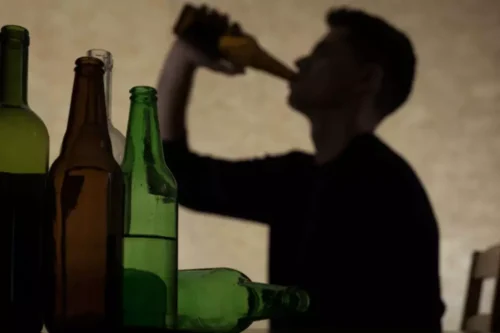
Inpatient and outpatient treatments are available, and these depend on factors including current withdrawal severity and the severity of past withdrawals. These symptoms can begin after 48 hours and last up to 7 days following the change in alcohol consumption. Withdrawal seizures are caused by the disruption of brain Drug rehabilitation chemistry due to chronic alcohol use. Prolonged alcohol consumption alters neurotransmitter activity, and sudden cessation leads to hyperexcitability in the brain.
Alcohol Withdrawal Syndrome: Benzodiazepines and Beyond

Some people experience prolonged withdrawal symptoms, like insomnia and mood changes, that can last for weeks or months. If you are one of these people, you should know that alcohol withdrawal, when undergone in a professional detox program, is completely manageable. And, this is not =https://ecosoberhouse.com/ because there is one specific cure that the staff at these centers offer up to patients. Instead, a variety of interventions are used successfully to limit discomfort and to curb cravings. Long-term treatment of AUD should begin concurrently with the management of AWS.8 Successful long-term treatment includes evidence-based community resources and pharmacotherapy.
Risk Factors for Acute Alcohol Withdrawal
Aftercare programmes continue to support people after their initial course of treatment, allowing them to benefit from a support network of empathetic people that helps maintain abstinence in the long-term. Secondary care, which helps people ease back into normality after their initial course of treatment, it also an effective way of ensuring your recovery is lasting. However, it’s important to note that depending on the nature of your alcohol addiction and the extent of your previous alcohol misuse, how long withdrawal symptoms are experienced may vary. 48 hours + – symptoms for most will begin to subside as your body starts to adjust to being without alcohol. The entire withdrawal process usually takes 3 to 7 days from the time of your last drink.
Can we count on your support?

Alcohol withdrawal is a potentially serious complication of alcohol use disorder. It’s important to get medical help even if you have mild symptoms of withdrawal, as it’s difficult to predict in the beginning how much worse the symptoms could get. The main ways to prevent alcohol withdrawal are to avoid alcohol altogether or to get professional help as soon as possible if you think you’re developing alcohol use disorder. But treatment varies based on the severity of alcohol withdrawal and the likelihood that it could progress to severe or complicated withdrawal. It affects about 50% of people with alcohol use disorder who stop or significantly decrease their alcohol intake. AUD is the most common substance use disorder in the U.S., affecting 28.8 million adults.

At Greater Boston Addiction Centers, we understand the dangers of alcohol withdrawal seizures Cure for Alcohol Withdrawal Symptoms and provide compassionate, evidence-based care to support every step of the recovery journey. Our programs, including Substance Abuse Treatment and Addiction Therapy Programs, are designed to address both the physical and emotional challenges of alcohol withdrawal. Managing alcohol withdrawal seizures requires a comprehensive, medically supervised approach to ensure safety and long-term recovery. At Greater Boston Addiction Centers, we provide personalized care through programs like Drug Rehab Boston, Substance Abuse Treatment, and Addiction Treatment Programs to help individuals navigate withdrawal and achieve sobriety. Finally, it is important to note that, in certain cases, a person could experience life threatening symptoms due to alcohol withdrawal. According to Recovery Worldwide, alcohol withdrawal occurs when a person stops drinking following heavy and prolonged use.
- A doctor may recommend taking supplements to help them through the detoxification process.
- Find out the facts, including short and long term side effects, common withdrawal symptoms and more.
- The severity and presence of withdrawal depend on several factors, including the duration and amount of alcohol consumption, individual health conditions, and previous history of withdrawal.
- N-methyl-d-aspartate antagonist ketamine appears to reduce BZD requirements and is well tolerated at low doses 71.
- When you talk to your doctor about symptom relief, it’s a good idea to discuss treatment for alcohol abuse or dependence.
- Once medical professionals have addressed all immediate risks to the person, outpatient care can begin.
Alcohol Withdrawal Stages and Severity

How long alcohol withdrawal lasts can depend on a variety of factors. Your symptoms may simply be uncomfortable or can be medically significant and require care. Symptoms occur in three stages, with the first symptoms typically appearing within 8 to 10 hours after your last drink if you have severe AUD. This page will discuss alcohol withdrawal syndrome, its potential symptoms, and how treatment can help. Most alcohol abusers who are having withdrawal symptoms have a shortage of several vitamins and minerals and can benefit from nutritional supplements.

Tell your close friends and family before you begin your detox, and ask them to support you. Consider creating a visiting schedule so you are never alone during the first week of detox. A supportive friend or family member can help you in many ways during withdrawal. If you decide to get treatment, your doctor can recommend the type of care that you need.
Management of Alcohol Withdrawal in a Professional Setting
Alcohol withdrawal (alcohol withdrawal syndrome) is a range of symptoms that can happen if you stop or significantly reduce alcohol intake after long-term use. Mayo-Smith and Saitz and O’Malley formulated a treatment regimen in accordance with CIWA–Ar score severity 24,51. According to these authors, patients with mild withdrawal symptoms (i.e., CIWA–Ar scores of 8 or less) and no increased risk for seizures can be managed without specific pharmacotherapy. Successful non-pharmacological treatments include frequent reassurance and monitoring by treatment staff in a quiet, calm environment.
This article examines how alcohol withdrawal can be fatal, including the outlook for those with this condition. It also details the symptoms and treatment of alcohol withdrawal and discusses when to seek help for alcohol use disorder (AUD). Alcohol withdrawal occurs when someone who is physically dependent on alcohol suddenly stops or reduces their drinking. While a person goes through alcohol detox, they can develop several symptoms of withdrawal. In other terms, these neuroadaptations resulting from continued drug or alcohol use lead to the development of physiological dependence. If you have a sibling or parent with AUD, then you are three or four times more likely than average to develop the disorder.
